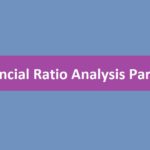Speculator Vs Trader Vs Investor
You can invest, trade or speculate in the stock market. It is up to you which of these three paths you want to take. It will depend on this decision that how much profit or loss you will make in the market.
Let us see an example to understand this properly.
RBI i.e. Reserve Bank of India is going to announce its monetary policy in the next 2 days. Due to the high rate of inflation, RBI has increased interest rates in monetary policies for the last four times. As we know, rising interest rates create difficulties for companies and affect their earnings.
Now suppose 3 people want to participate in the market Sunil, Tarun and Girish. All three see this happening in different ways, that is why all three take different steps. Let us understand their thinking.
Here I will also talk about option contracts but this will be discussed in detail in the next module for your understanding.
- Sunil’s entire environment is his own opinion. He believes that:
- Interest rates are already very high and they cannot go up anymore.
- Higher interest rates can reduce the growth rate of Corporate India.
- Sunil feels that the Reserve Bank of India has already raised the interest rates so much that now it will be difficult for the RBI to increase the interest rates further.
- He listens attentively to other TV analysts and is happy to know that those people’s views match his.
- He assumes that RBI will now reduce interest rates.
- And because of this the market will go up.
Based on these considerations he buys a call option of State Bank of India.
Tarun’s thought process is slightly different, Tarun admits that:
It is not right to expect RBI to cut rates. He also feels that it is a bit difficult to tell what RBI will do.
Tarun also observes that there is a lot of volatility in the market and in his opinion option contracts are being sold at a very high premium in the market.
Based on his past experience, he knows that as soon as RBI announces its interest rates, the volatility in the market will reduce.
Based on these views he buys five lots of Nifty call option and as soon as RBI announces, he intends to sell this lot.
Girish: Girish has a portfolio of 12 stocks which he has held for 2 years. Though he keeps a close watch on the economy but he has no idea on what RBI will do. He is not worried about what comes out of the policy because he knows that he intends to hold his stocks for a long time. He feels that monetary policy is a short-term phenomenon, it will not affect the market in the long run and if there is any impact on his portfolio then he has time and patience. He will hold his shares.
In such a situation, Girish decides that if the market gives a big reaction after the RBI’s decision and the stocks in his portfolio fall, then he will buy more in those stocks.
Here we are not paying attention to what the decision of RBI comes and who makes money in all three. Here we are trying to identify who is a trader, who is an investor and who is betting. All three have their own logic and based on that they make their decisions in the market. Note that Girish’s decision to do nothing is also a market-linked decision.
Sunil is almost sure what the RBI will do and he takes his decision based on the rate cut. But the truth is that it is a difficult task to tell what any regulator will do and especially what RBI will do in this matter. It is not so easy to analyze the work of RBI. In such a situation, deciding without any logic that there will be a rate cut is just speculation. This is what Sunil is doing.
Tarun is working under a plan. He is seeing that a trade can be made by taking advantage of the high option premium available in the options market. He is not betting on what RBI will do and it doesn’t matter to him. His intention is clear that the volatility in the market is high and the option sellers are getting good premiums. It expects volatility to come down after RBI’s decision.
Isn’t he betting on whether the volatility will drop?? No, not at all. He is assuming on the basis of his past experience that this will happen. A trader makes his trades systematically and does not speculate.
Girish, on the other hand, is an investor. It is not affected at all what RBI will do? For him, this is a short-term market noise event, which will not have any major impact on his portfolio and even if it does, he believes that his portfolio will recover from this shock in the coming times. There is only one thing that gives profit in the market and that is time and Girish is ready to take full advantage of it. In fact, if the market falls, it is more inclined to buy its portfolio shares. It intends to stay in the market for a long time and not be affected by short-term volatility.
All three have their own different ideologies which influence them to take different decisions. In this chapter we will understand why Girish who is a long term investor is not affected by short term volatility.
The compounding effect
Why did Girish decide to stay invested and not take any action despite the volatility in the short-term market? To understand this we have to understand how money compound? Compounding in simple language means that if the earnings of the first year are reinvested in the second year, then the money grows rapidly.
For example, suppose you have invested ₹100 which is to grow at the rate of 20% every year. (Remember that it is also known as CAGR- CAGR). At the end of the first year you will have ₹120. Now you have two options:
- Let your profit of ₹20 stay invested and grow with your primary investment of ₹100
- Withdraw profit of ₹20
If you let your ₹20 profit stay with that investment, then by the end of the second year your ₹120 will increase to ₹144 and by the end of the third year, ₹144 will increase to ₹173 and it will continue to grow in the same manner. Now compare this with the position of taking profit of ₹20. If you had taken a profit of ₹ 20 and continued to withdraw it every year, you would have got ₹ 60 till the third year, while being an investor you would have ₹ 173 at the end of the third year, that is, you would have a total profit of ₹ 13. Which would have been 21.7% higher than 60. It would have been just because you had left your money to invest there. This is called the effect of compounding, now let us see the chart below to understand it a little more.

This chart shows how much an investment of ₹ 100 has grown at the rate of 20% in 10 years. You will see that ₹100 becomes ₹300 in 6 years whereas it took only 4 years to reach from 300 to 600. This is the most important thing about compounding, the more time you invest, the faster your money will grow. That’s why Girish had decided to remain an investor and tried to take advantage of this time. Every investment made on the basis of fundamental analysis should be left for long term. An investor should adopt this ideology.
Does the investment make a profit? (Does investing work?)
Think of a plant. Will it grow if you give it water, fertilizer and time? Will definitely grow! In this way a good business should be thought of. If its sales are doing well, profits are getting good, new products are coming and the management is good, then the share of that company will definitely increase. In some cases this increase may be delayed (recall the Eicher Motors chart we showed in the previous chapter) but still it will increase. This thing has happened time and again in markets not only in India but across the world.
Investing in a good company that has investing qualities is always profitable. Just keep in mind that you don’t have to be alarmed by minor upheavals, this short-term turmoil.
What are the investible qualities of a company? (Investible grade attributes? What does that mean)
Like we said in the previous chapter, every company worth investing in has certain qualities that are visible. These properties can be divided into two parts. According to the quality of the company and according to the figures. Both of these are studied in fundamental analysis. By the way, I rely on the quality of the company more than the numbers for my investments.
The quality attributes are those parts of the business that do not have statistics, such as:
Management Background – Who are the people who are running the company? What is his background, what is his experience, what is his education, whether he knows how to run a business or not, whether there is any criminal case against him or not? e.t.c
How are the business ethics – How is the business policy of the company? Whether the management is involved in any kind of scam, bribery or business policies that are morally wrong.
- Corporate Governance – Things like appointment of directors, company structure, transparency.
- Minority Share Holders – How does the company treat its minority shareholders? Does the company take care of their interests?
- Trading of their shares – Are the promoters of the company secretly engaged in buying and selling their own shares?
- Related party transactions – Whether the company is working to bring financial benefits to its close people and acquaintances, such as relatives, friends of the promoter, or other people who are close to the company, while causing loss to its investors .
- Promoters Salary – Is the management paying itself a hefty salary along with a substantial portion of the profits?
- Operator’s Presence in Shares – Does the stock of the company undergo unusual fluctuations, especially when the management itself is trading in the stock market?
- Shareholders – Who is the major shareholder of the company? Who owns more than 1% of the company’s shares?
- Political closeness – Are the company and its promoters close to a particular political party? Is this business running because of political aid?
- The lifestyle of Motors – Are Promoters Living a Very Pretentious Life? Does he show off his wealth everywhere?
If any of the above things are not correct then it is a danger sign. For example, if a company is repeatedly doing related party transactions, then it clearly shows that the company is biased and adopting bad policies. This does not bode well for the future of the company. Even though the company is making good and big profits, but the day the market comes to know about these movements of the company, people will sell the shares and the company’s share price can come down significantly. So it is important that investors don’t just focus on profits but also look at how the company’s corporate governance or other things are.
Although it is not easy to know the things related to quality, but a good investor can find out about these things by reading the company’s annual report, watching the management interviews, knowing the news. We will discuss these things in detail later in this module.
Data issues are reflected in the company’s financial results. Some figures are in front of you and some you have to find. For example, you will know how much cash is in the inventory but you will not see the “Inventory Number of Days”. But it is necessary to calculate it. The stock market gives a lot of importance to the data, the important things that are included in these figures are:
- profit and growth
- Margin and its growth
- Earnings and its growth
- expenses
- efficiency of work
- freedom to set prices
- tax-related matters
- dividend
- cash flow
- Short term and long term loans
- working capital
- increase in assets
- new investment
- financial ratio
This list is even longer. In fact, each sector has its own list. for example
|
For Retail Industry: |
|
|
|
In the next few chapters, we will try to read and understand the data given in the annual report from the financial statements. You must be aware that the financial statement is the main source of all the data and the data generated from here is analyzed.
Highlights of this chapter
- A trader and an investor have different ideologies.
- An investor has to make his ideology investor-oriented, only then he can invest well.
- An investor should stay invested in the market for a long time only then he can take advantage of compounding.
- The rate of doubling of money increases more rapidly with the duration of stay invested. The longer you stay invested, the more you get the benefit of compounding.
- Every investment should be judged by the quality and statistics of the company.
- Data is not needed to investigate quality issues, but to gather information about the company.
- To collect data related information, one has to examine the available data of the company. The most important source of this is the financial statement.

Gaurav Heera is a leading stock market educator, offering the best stock market courses in Delhi. With expertise in trading, options, and technical analysis, he provides practical, hands-on training to help students master the markets. His real-world strategies and sessions make him the top choice for aspiring traders and investors.




